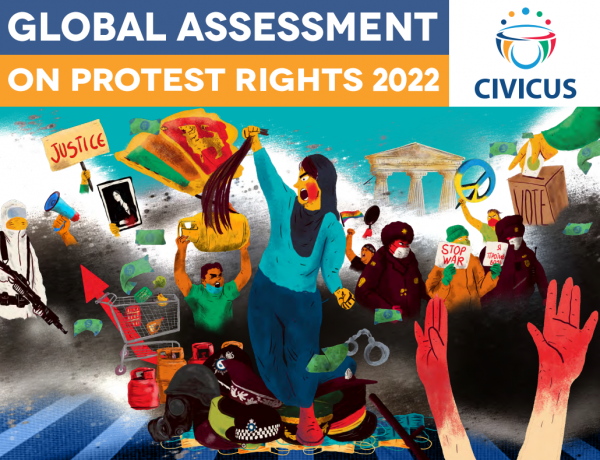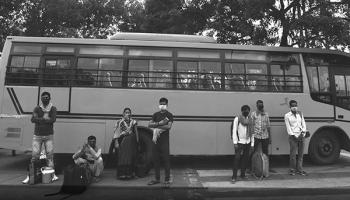
Read CIVICUS' new report on 'Global Assessment on Protest Rights (October 2021 - September 2022)'
"Since 2017, the CIVICUS Monitor has tracked an ongoing crackdown on the right to peaceful assembly. Most recently governments have used the COVID-19 pandemic as a pretext to further restrict fundamental freedoms, including the right to protest. Despite this, people are continuing to mobilise, including by using creative and alternative forms of protest when pandemic restrictions are applied, such as masked and distanced demonstrations and online protests. Technology has broadened the opportunities for mobilising, but at the same time new challenges have emerged for critical voices, as governments expand their tactics to restrict online access and put people under surveillance.
Though challenges persist, protests continue to be a powerful and effective means of defending rights and advocating for their realisation. In 2022, the rising cost of food and fuel have sparked mobilisations against corruption, mismanagement and inequality. Mass protests have taken place in many countries around the world, even in authoritarian contexts. In some countries, smaller-scale protests have drawn attention to pressing issues. Protests initially sparked by regressive economic policies and increases in the cost of living have often turned into protests against corrupt political leaders and systemic injustice."
Out of 33 categories of violations of civic freedoms tracked by the CIVICUS Monitor, since 2020 the detention of protesters has been the number one violation. Detention is a pervasive practice used by the authorities to prevent and disrupt protests and punish protesters. Women, LGBTQI+ people, Indigenous people, Black people, migrants and other excluded groups often face harsher repression due to discriminatory and unjust practices.
While restrictions used by the authorities prior to protests are challenging to quantify, due to the different state elements involved and methods employed, this paper describes restrictions by illustrating some of the most significant cases documented by the CIVICUS Monitor in the past year.
Across the globe, governments are using a range of tactics to crack down on protests. Although international human rights law and standards establish that, as a general rule, states must ensure the right to peaceful assembly, restrictions of the right often begin even before any protest occurs. Authorities prevent demonstrations by refusing permission or blocking routes adjacent to a planned protest area. Organisers face intimidation, harassment and surveillance when planning a protest, and sometimes are subject to house arrest just before a protest.
